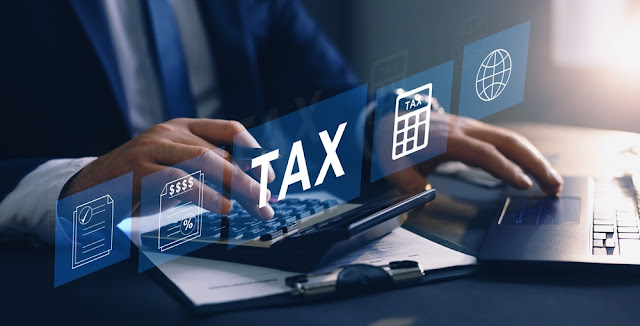Traveling is one of the most exciting and fulfilling experiences one can have. It offers a break from our mundane daily routine, an opportunity to explore new places, cultures and make unforgettable memories. However, traveling can also be expensive, especially if you don't plan your expenses accordingly.
 |
| Travel - What do travel expenditures refer to? |
From flights to accommodation, food, and activities, there are various expenses to consider when planning your trip. In this blog post, we will discuss the different travel expenses you should consider before embarking on your next adventure. So if you're planning a trip soon or just want to learn more about travel expenses, keep reading!
1. What are travel expenses?
- As an employee who frequently travels for work-related activities, travel expenses refer to any cost incurred during my time away from the usual place of work. These expenses may include transportation, such as airfare, taxis, or rental cars, as well as lodging and meals. In addition to these basic expenses, other services such as communication devices, tips, and local transportation costs may also be included.
- As an employee, it is my responsibility to maintain all receipts and other documentation related to these expenses. While it may be tempting to write off personal trips as business expenses, it is important to note that travel expenses are only deductible when they are incurred for official recipient or subrecipient business travel.
2. Business-related activities
- The travel and hospitality industry is ripe with opportunities for entrepreneurs seeking to build businesses related to travel. From offering personalized travel assistance to leading guided tours, the possibilities are endless. One potential business idea is to modernize the traditional bed and breakfast, offering unique experiences and value-add services to guests.
- Another option is to start a tour guide business, providing walking tours and cultural experiences to tourists who want an authentic and personalized experience. Additionally, the industry offers opportunities to create themed corporate retreats, summer camps or school camps, and even language workshops. For those who love to travel, running a travel vlog is a potential opportunity to share their adventures and experiences with others.
- Conferences and meetings also offer opportunities for businesses in the industry, as companies want to offer unique destinations and experiences to their attendees. Overall, the #travel and hospitality industry is an exciting and promising space for entrepreneurs looking to build successful, business-related activities.
3. Deductible expenses
. I am always looking for ways to maximize my deductions when it comes to travel expenses. Luckily, there are several deductible expenses when it comes to business travel. Firstly, I can deduct the cost of transportation, including flights, trains, buses, and even Uber rides.
. Additionally, baggage fees incurred during travel can also be deducted. Furthermore, if I engage in business activities abroad for 100% of my time, I can fully deduct the cost of foreign travel expenses. However, it is important to note that expenses incurred during non-business activities are not deductible.
. Meals and tips during business travel can also be deducted, as long as they are not considered lavish or extravagant. Lastly, any expenses incurred by an employee or business associate for the same business purpose can also be deducted, as long as they meet the necessary criteria. Overall, being aware of these deductible expenses can significantly reduce the cost of my business travel and ultimately benefit my self-employed business.
4. Meals and travel expenses
As a business traveler, I am aware that meals and travel expenses can add up quickly. However, the IRS does allow for deductions on reasonable meal and hotel costs during business trips. Generally, the deduction for business meals is limited to 50% of the unreimbursed cost.
But, there are temporary rules in place that allow for a 100% deduction of food or beverages. It's important to keep in mind that meals must be incurred while traveling for business purposes to be deductible. Additionally, the company may be able to deduct travel, lodging, and 50% of meals incurred while attending a conference or seminar that benefits the business.
To simplify record keeping, I often opt for the standard meal allowance, which also allows for an 80% deduction on meals for certain workers. Overall, it's important to ensure that all business-related expenses are ordinary and necessary to be considered deductible.
5. Family vacations vs. business trips
- As a frequent business traveler, I have come to appreciate the perks that come with turning these trips into family vacations. First and foremost, it saves a ton of travel costs. Since my employer covers my transportation and lodging expenses, bringing my family along only requires me to pay for their airfare and meals.
- Additionally, having loved ones by my side helps break up the monotony of attending meetings all day. Being able to explore a new city's attractions with them during my downtime is a great way to recharge my batteries. However, it's important to remember that there is a fine line between a business trip and a vacation.
- As much as I enjoy having my family around, I always make sure to prioritize my work obligations and schedule my leisure activities accordingly. Overall, if done correctly, mixing business with pleasure can be the best of both worlds.
6. Tax deductions for business travel
- As a busy professional who travels frequently for work, it's important to take advantage of all available tax deductions. Fortunately, travel-related expenses are generally tax-deductible as long as they are directly related to a temporary work assignment away from home. This can include airfare, lodging, meals, car rental expenses, dry cleaning, and even tips.
- However, it's important to be cautious with meal expenses and ensure that they are not considered "lavish or extravagant" according to IRS guidelines. As a rule of thumb, I aim to keep my meal costs reasonable and within budget.
- It's also important to note that travel expenses must be directly related to business activity in order to qualify for a tax deduction. While some deductions can be more complex, like mortgage interest and student loan interest, claiming deductions for business travel can be a straightforward way to reduce my tax burden and save money.
 |
| Travel - What do travel expenditures refer to? |
7. Passenger transportation expenses
. As a business professional who frequently travels for work, I am well aware of the extensive costs associated with transportation expenses. Whether it's taking public transport or using a private car, every journey adds up. When transporting groups of individuals, such as for corporate events or team-building activities, it's essential to consider the size of the vehicle required and the cost per passenger.
. For instance, an SUV can hold up to seven passengers but at a higher cost. The cost of transportation is also affected by factors such as extra waiting time, which can lead to additional expenses. As a responsible employer, it's our duty to ensure that we obtain a cost-effective yet practical mode of transportation for our employees.
. We are always mindful of expenses because, in 2017, transportation costs were the fourth largest expenditure among American households. Overall, whether it's a van, a bus, or a private car, transportation expenses are an integral part of any business operation, and it's crucial to manage them efficiently.
8. Maximum deduction limits
- it's important to stay up to date with the maximum deduction limits for travel expenses. For tax years beginning in 2022, the maximum amount that can be deducted for most section 179 property, such as vehicles, is an important consideration. Additionally, if a seminar or convention is attended on a cruise ship, up to $2,000 can be deducted annually, including travel, meals, and mileage expenses.
- Although meals with clients and business travel are deductible, the deduction is limited to a maximum of 300 square feet. It's also essential to note that franchise tax rates, thresholds, and deduction limits vary by report year.
- For individuals who are self-employed or 1099 contractors, business travel tax deductions can be claimed, with no requirement to travel first class or stay at a high-end hotel. And, of course, make sure to stay on top of any changes to the Compensation Deduction Limit and the GSA's established CONUS Per Diem rates for federal travel customers.
9. Personal vs. business reasons for travel
- As someone who travels frequently for work, I understand the importance of distinguishing between personal and business reasons for travel. While there may be instances where adding personal time to a business trip can have benefits for my health and productivity, it's essential to keep in mind the rules and regulations surrounding travel expenses. Any expenses incurred for personal reasons cannot be reimbursed by my employer, and I am only allowed to deduct expenses that are directly related to my business activities.
- Additionally, it's important to stay within my company's travel policy, as emergencies or individual instances can arise that may cause me to go off course. Ultimately, both personal and business reasons for travel should be carefully considered to ensure compliance with policies, regulations, and budgets.
10. Eligibility for travel expense deductions.
As a taxpayer, I understand that certain expenses can be deducted for tax purposes. Travel expenses are among the eligible expenses for deduction, but only if they meet certain criteria. To be eligible, the travel must be for business purposes and the expenses must be considered ordinary and necessary. This means that if I am traveling for work, I can deduct my travel expenses as long as they are reasonable and expected for my job.
Additionally, travel expenses incurred while on a temporary work assignment in a single location or during a conference, worksite visit, or change of scenery may also qualify for deduction. Travel costs that are accumulated during an undetermined work task that exceeds a year cannot be subtracted for tax-related reasons.. As I plan my business travel, I will keep these eligibility criteria in mind in order to maximize my tax deductions.




.jpg)